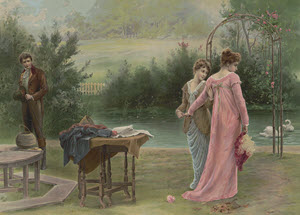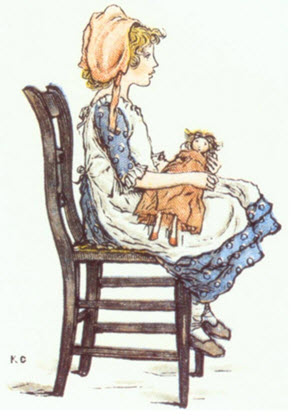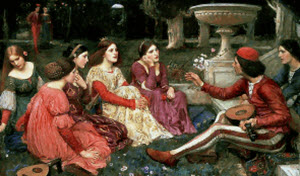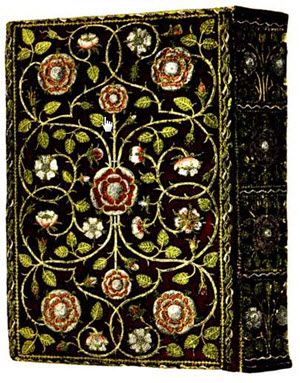EDGAR ALLAN POE - Part 28
Literary persons have called in their scientific and philosophical friends to help them find the flaws in a piece of work which was made by a literary man more independent and confident than they.
To know just where "Eureka" be longs in thought, one needs to know not what science is now, but where it was in 1848. Since Poe's scientific argument has been severely measured by the standards of science, as they had developed up to about 1880, it may be worth noting that a recent scientific hypothesis, that matter is negative electricity, agrees well enough with Poe's theory that substance is attraction and repulsion. The essay in English which discusses most competently the various sides of Poe's mind is that by the Scotch rationalist, Mr. John M. Robertson, who combines literary gifts with the peculiar knowledge he has amassed as historian of certain phases of philosophy. He is not so ready as some of Poe's critics to dismiss u Eureka" as a piece of thinking. Poe's guess is as good as many which have been seriously accepted as philosophy. Solutions of the eternal riddles are valid less for what they offer in explanation than for their own perfection of structure; and most writers in English upon philosophical matters fall far short of Poe in clarity and beauty of exposition. The introduction is a poem in itself: "To the few who love me and whom I love, to those who feel rather than to those who think, to the dreamers and those who put faith in dreams as the only realities, I offer this book of truths, not in its character of truth-teller, but for the beauty that abounds in its truth, constituting it true. To these I present the composition as an art-product alone - let us say as a romance ; or, if I be not urging too lofty a claim, as a poem.
"What I here propound is true:
therefore, it cannot die or, if by any means it be now trodden down so that it die, it
will rise again to the Life Ever lasting. Nevertheless, it is as a poem only that I wish
this work to be judged after I am dead."
Obviously, an easy request to grant. It is pathetic, though, to learn what confidence Poe had in his theory of cosmogeny. He believed that it would revolutionize thought and give him new prosperity, and that Putnam should publish fifty thousand copies. Putnam contented himself with five hundred copies, and the world refused to be revolutionized or even to give Poe prosperity.
During the last years of his life Poe lectured in several cities on poetry and on the universe, and with the proceeds of the lectures and what money he could borrow from his friends, whose help he now vigorously solicited, he again hoped to give shape to his nebulous magazine. Before his death he found a promising partner in a Mr. Patterson, of Oquawka, Illinois. They arranged to publish the first number in July, 1850. The great magazine seemed ready to emerge at last from shadow when the darker shadow intervened.
Poe was a poet to the end. In "Ula-lume" of 1847 he shows his peculiar characteristics in their extremist form. It is hard to feel sure from one day's reading of it to another whether he has here crossed the line into nonsense or whether he has come to ultimate perfection. To the final year belong the third version of "The Bells," "Annabel Lee," and "For Annie."
In this memorable poem "For Annie," Poe seems to speak out of the real terrors of his life.
" And the fever called Living Is conquered at last."
Haply, it was conquered by the death that came soon after,bad luck pursued him to the end. The financial panic sent into insolvency some of the magazines which owed him money or had accepted manuscripts or promised to accept them. The only bright spot was his success in Richmond, where society seems to have done him honour and put money in his purse. He paid two visits to Richmond. For the second he left New York in June, 1849. Before he went, he seems to have known that his life hung by slender strands, for he directed Mrs. Lewis ("Stella,' 7 another of his lady poets) to write his life, and he wrote to Griswold, asking him to undertake the editing of his works. Griswold's reply came while he was in Richmond, and the pleasure it gave Poe, as witnessed by one of his friends, indicates that the man who wrote it should not have written after Poe's death that he was not Poe's friend. On his way to Richmond through Philadelphia, Poe was enforced guest in the house of John Sartain, the publisher of the magazine in which "The Bells' 7 appeared. Poe was ill and crazed, possessed with the hallucination that his enemies were pursuing him. His journey to Richmond was delayed many days, during which Mrs. Clemm, in New York, was frantic with anxiety. Poe explained to the Oquawka partner that he had had cholera. Cholera was not the name of the disease.




